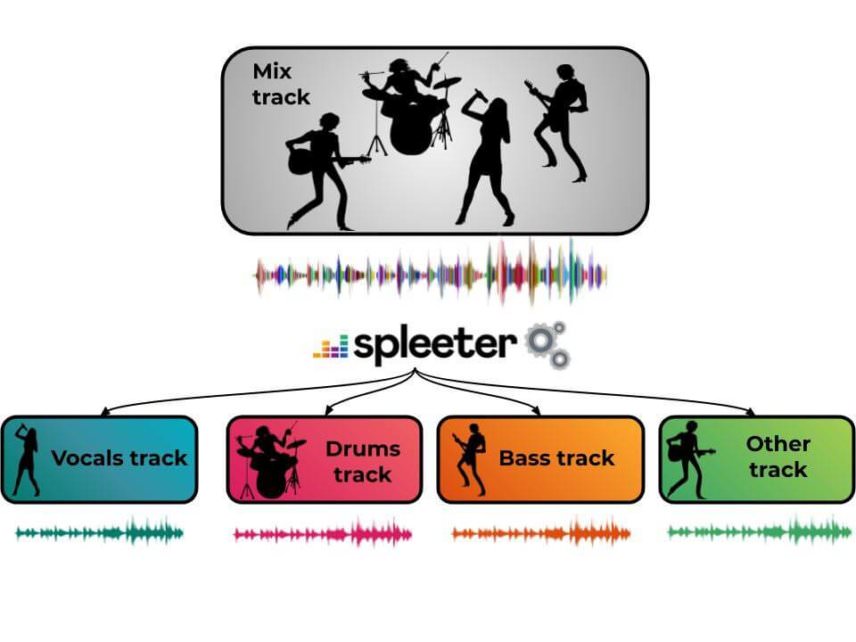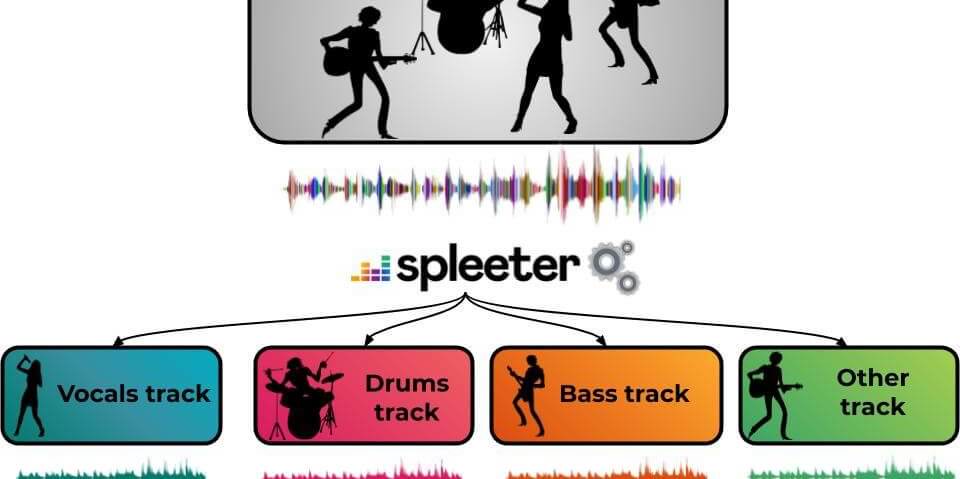Deezer Research, the research and development arm of French music streaming app Deezer, has announced Spleeter – an open source AI tool that splits stems.
As the press release suggests, music source separation, the process of separating the source engines in a full mix, has rapidly become more mainstream these past few years. It was just last month that Audionamix won ADE Tech: 5 Companies to Watch Out For with their own engine offering a similar service to Spleeter. Even in Ozone 9 the rebalancing module is, under the hood, offering a similar algorithm service. In short, music detection and separation is moving quickly.

For many a reader of Attack, we’d all enjoy the opportunity to unmix our favourite tracks and use the stems to learn, sample and reprocess creatively. Indeed, source separation is going to pose many headaches for licensing, copyright and sample clearance which is an area that already has enough of a migraine to manage currently. Well done to the press team for addressing this in the press release.
What does it offer?
- Its fast. Spleeter is not the only available source separation on the market, (Open-Unmix is another that you might find works better on your own music) but it does promise to be the fastest. If you are running the GPU version you can expect separating 100x faster than real-time which makes it a good option to process large datasets.
- It’s open sourced and free. It won’t cost you a $ to play around with and all you need is a MIT license. Who doesn’t like free stuff?
- Its ‘quite’ easy to use. Spleeter is built using Python and TensorFlow. If you’re not already familiar with these you’ll find that the learning curve is no more complicated than synthesis and can be done with a single command line. It’s also just as much fun.
- It’s fun. This goes with our saying but source separation is not as accurate as you might wish at this stage. There is still some way to go but you’ll might enjoy the random results and interesting workflows. Give it a go and if you’re stuck then RTFM.
Deezer have been able to leverage their massive library of music (yes it is still going) in order to run the tests on the viability of the technology. They have been upfront that it’s not perfect and honourably noted how it’s hard for engineers to develop source separation engineers without access to permissive libraries free of copyright and licensing restrictions. Deezer has acted resourcefully to bring this research tool to market but have been clear that it’s far from ‘perfect’.
For more information, check out Spleeter. For readers particularly interested in the history of source separation you’ll enjoy this thread here or this one.
